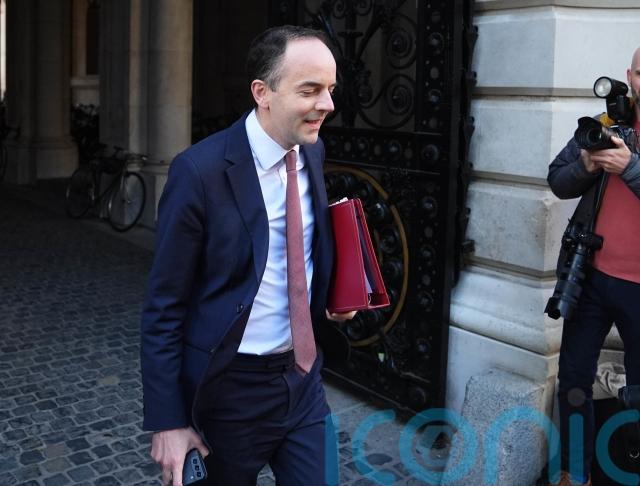
The Treasury has ordered Cabinet ministers to keep a tight rein on spending while clamping down on their access to emergency funding ahead of the Budget.
Departments will not be permitted to draw from the Treasury reserve to fund public sector pay rises, ministers have been told by Chief Secretary to the Treasury James Murray.
Chancellor Rachel Reeves told her Cabinet colleagues about the changes last month as she seeks to reduce the pressure on the public finances ahead of her November 26 Budget, limiting the need for tax hikes to balance the books.

In a letter to ministers, Mr Murray confirmed that access to the reserve will be granted only “on an exceptional basis” and ministers would have to prove they had exhausted all savings options.
Departments would also be forced to repay any money borrowed from the reserve, he said.
The reserve is only for “genuinely unforeseen, unaffordable and unavoidable pressures” that cannot be absorbed within departments’ existing budgets, according to the Treasury’s budgeting guidance.
But there have been examples where departments could not find the funding for public sector pay rises from within their budgets, Downing Street said.
Officials said the cost of 2024-25 pay awards and an overhang from 2023-24 pay awards were included in £22 billion worth of overspend which the Government inherited when it entered office.
“To keep tight control on public spending, departments must take responsibility for managing pressures and making choices about priorities without relying on the reserve,” the letter says.
“We must deliver the efficiency plans set out in June – reducing administrative budgets, including those of arms-length bodies and agencies – and deliver comprehensive digital transformation.
“I would ask you respond to any pressures your department faces by making offsetting savings and by taking choices about reprioritisation. ”
The move to limit access to the reserve is to help the Chancellor meet her borrowing rules and ensure departmental spending remains in line with the June spending review.
No 10 said it is building on news that official Government borrowing figures for 2024-25 were lower than first thought.
The Office for National Statistics (ONS) said the figures had been overstated because of inaccurate data on VAT receipts, and that borrowing for the current financial year to August was £81.8 billion, down from the £83.8 billion previously reported.
This gives the Chancellor an extra £2 billion wriggle room in her November Budget.
But financial year-to-date borrowing is still far higher than the £72.4 billion forecast by the UK’s fiscal watchdog, the Office for Budget Responsibility.
Economists have warned Ms Reeves could be forced to unveil more tax increases in the Budget to meet her goal of balancing day-to-day spending with revenues instead of borrowing by 2029-30.
Prime Minister Sir Keir Starmer’s spokesman said tightening up reserve access is “the common-sense approach”.
“They ruled out the use of the reserve for public sector pay rises, so any pay rises for the next year need to be funded from existing departmental settlements and departments have to make trade-offs within their budgets in the usual way,” the official told reporters.
Subscribe or register today to discover more from DonegalLive.ie
Buy the e-paper of the Donegal Democrat, Donegal People's Press, Donegal Post and Inish Times here for instant access to Donegal's premier news titles.
Keep up with the latest news from Donegal with our daily newsletter featuring the most important stories of the day delivered to your inbox every evening at 5pm.